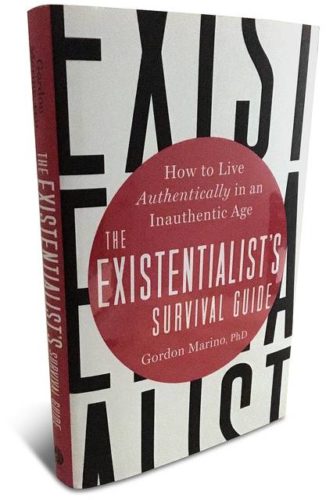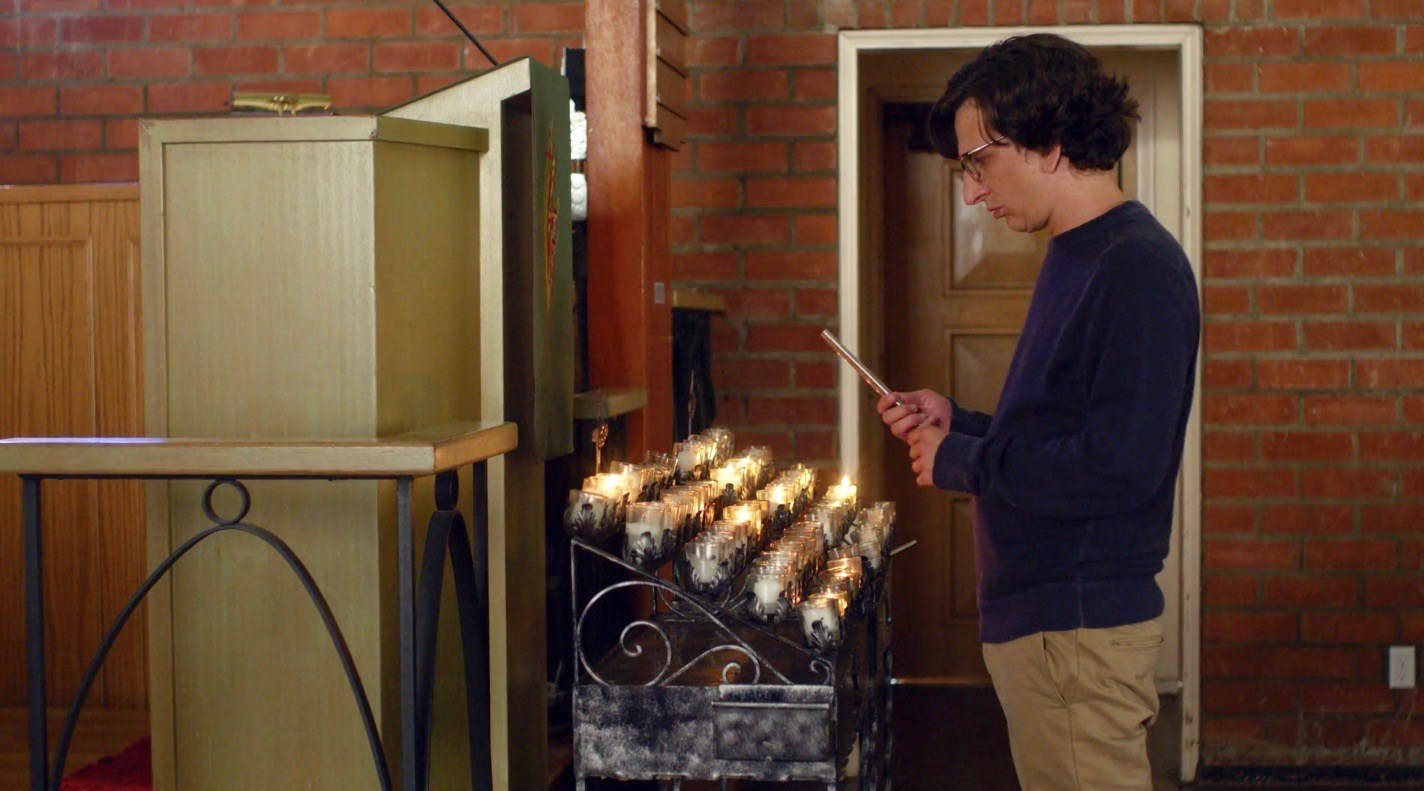
This comes from a new book out by Kierkegaard scholar, Gordon Marino, The Existentialist’s Survival Guide: How to Live Authentically in an Inauthentic Age. Marino divides his chapters up among the crucial talking points of the famous existentialists — Kierkegaard, Nietzsche, Camus, Sartre — and this particular passage comes in the chapter on faith. While everyone in that stable of noteworthy thinkers found religious faith to be an absurd proposition, it was only Kierkegaard who still found the proposition worth taking.
 Marino himself is a skeptic. He is a self-proclaimed “contented individual…on the miserable end of the spectrum,” and yet one “who sleeps soundly and rises in the morning eager to embrace the promises of the day.” He has seen Kierkegaard as a therapist of sorts his whole life, especially in moments when faith in a higher power felt furthest from real or possible.
Marino himself is a skeptic. He is a self-proclaimed “contented individual…on the miserable end of the spectrum,” and yet one “who sleeps soundly and rises in the morning eager to embrace the promises of the day.” He has seen Kierkegaard as a therapist of sorts his whole life, especially in moments when faith in a higher power felt furthest from real or possible.
In the chapter, he tells a story about being in a particularly low spot and parking in a convenience store to grab a 12-pack. He instead finds himself wandering into the Catholic church in town, St. Dominic’s. Wondering to himself if this moment could be the place and the time when faith suddenly returns to him, after decades of doubt, he tries to light a candle for his long-dead father. To his dismay, all the candles have been burned down to the metal casing, and there are no church staff members to be found.
After a second pass (around the chapel), I literally hissed a “WTF.” The fact that I couldn’t so much as light a candle for my old man sparked a paranoid sense that there was no benevolent higher power, but rather some fate-like dark force barreling across the universe, bent on grinding me into someone I would not care to glimpse in the mirror. Given my past transgressions, the punishment seemed to fit the crimes. I laughed at myself for stopping at the church and blamed this dastardly destiny for making me “lose my faith.”
And yet, as I burst out of the heavy glass church doors, a strange question swam up and broke the surface: Do we lose our faith or push it away?

He continues later, describing how Kierkegaard would have spoken to him on that lonesome late afternoon.
To be sure, there are millions who shruggingly dismiss faith as nonsense; millions who proudly proclaim that they have no need of God now or when they end up in the ICU. As the late Kierkegaard scholar David Kangas explained, the need for God for Kierkegaard is unlike other needs in that it does not reveal a lack. The need for God is human being’s highest perfection. It is a gift of the condition necessary for receiving the gift of faith in God. This sophisticated bit of exegesis is not likely to change the mind of someone convinced that it is tragic that so many otherwise rational beings could be taken in by such a patently false illusion as God.
For the holy fools who hanker for faith, feelings and convictions wax and wane. A few days ago, I had to spend hours with a petulant individual who set my jaw on edge and made my skin crawl. I literally prayed for a soul softening. To my surprise, the afternoon spent together was almost pleasant. Driving home, I was musing that it felt as though someone had reached in and changed my heart…I also speculated about how difficult it is to detect miracles that only occurred inwardly. We always picture the miraculous as walking on water or healing the blind; how about as opening the sluices of loving feelings?
The decisive question about faith is how we relate to our beliefs and feelings. When you lack all conviction, do you chase after it or throw up your hands and say, “Thank God I have outgrown those superstitions”? But for not-so-holy fools like the present author, it seems perfectly fitting to pray to a God you don’t believe in for faith in God. Dostoyevsky taught that the worry about faith is faith, and Kierkegaard, who likened prayer to listening to God, remarked, “Prayer does not change God, but it changes him who prays.”

COMMENTS
2 responses to “The Decisive Question About Faith”
Leave a Reply













So good!
Except that prayer does both. It both changes us and “changes” God, as the example of Abraham in discussion with God over the fate of any righteous in Sodom and Gomorrah teaches us.